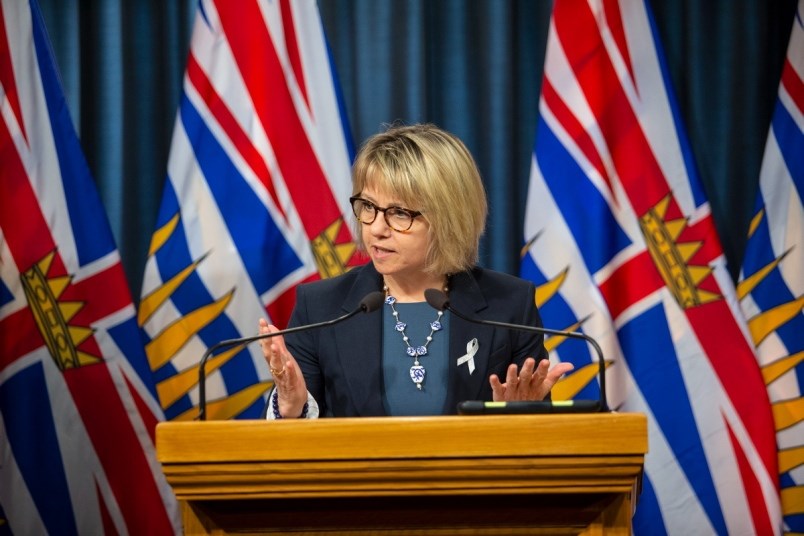British Columbians should no longer face jail time or a criminal record for possessing small amounts of illicit drugs for personal use, the provincial health officer states in a new report.
Dr. Bonnie Henry recommends the urgent provincial policy change as way to mitigate the ongoing overdose crisis that continues to kill three to four people a day.
Henry says the "war on drugs" is widely recognized as a failure that does more harm than good by stigmatizing people who use drugs and preventing them from getting help.
"Decriminalization of people who possess a drug that reflects personal-use-only is, I believe, a necessary next step for our province," she told reporters at the B.C. legislature.
"It's a mechanism we can [use to] stop both the incredibly high toll in B.C. and make harm reduction services more accessible and available to people who need them."
The federal government has made clear it has no immediate plans to address drug policy beyond the recent legalization of cannabis, Henry said.
"But in the context of the continuing overdose crisis that is affecting families and communities across B.C., the province cannot wait for action at the federal level," she writes in her report, Stopping the Harm: Decriminalization of People Who Use Drugs in B.C.
"Immediate provincial action is warranted, and I recommend that the Province of B.C. urgently move to decriminalize people who possess controlled substances for personal use. This is an important additional step to stem the tide of unprecedented deaths."
Henry says one option would be for Solicitor General Mike Farnworth to use the Police Act to set "broad provincial priorities" for dealing with people who use drugs.
"This could include declaring a public health and harm reduction approach as a provincial priority to guide law enforcement in decriminalizing and de-stigmatizing people who use drugs," the report states.
The approach would use administrative penalties instead of criminal charges and allow police to link people with health and social services.
Henry admitted that the Police Act has not been used in this context before. "But I say what other crises do we need to have to be able to use those powers?"
The other option would be for government to amend the Police Act to prevent police forces from spending money to enforce simple possession offences.
"It would basically say: 'That's not how we're going to deal with this issue,' " Henry said.
Victoria Police Chief Del Manak, who attended the news conference with Henry, said there is already de-facto decriminalization of simple possession in some jurisdictions.
"I can tell you from the Victoria Police Department's perspective, I dedicate zero resources to minor drug possession," he said.
"What we do is we target drug traffickers who use violence -- whether it's physical violence or sexualized violence -- to prey on the most vulnerable in our communities. That's where the efforts are put."
He acknowledged, however, that other departments might take a different approach. "So perhaps this is an opportunity to have discussion with the province on looking at what can we do to come up with some standardization and some policy, perhaps even some guidance on how police deal with minor drug possession."
Dr. Keith Ahamad, medical director of the Regional Addiction Medicine Program at Vancouver Coastal Health, welcomed Henry's call for an end to the practice of criminalizing people who use drugs.
"This decades-old policy has influenced the health care system to essentially ignore addiction as the health issue that it is and has really left us crippled to respond to an addiction crisis that we now find ourselves in," he said.
"To save lives, eliminate suffering and save tax dollars, we must focus on the health of all British Columbians."
Henry noted in her report that Portugal decriminalized simple possession in 2001.
"Evidence has shown that this drug policy model, along with other interventions (e.g., harm reduction, prevention, enforcement, and treatment strategies) has led to an increase in treatment uptake, a reduction in drug-related deaths, and importantly, no increase in drug use rates," the report states.



.png;w=120;h=80;mode=crop)